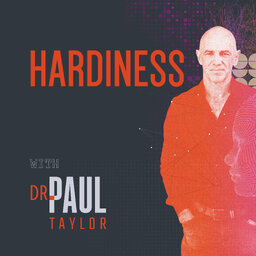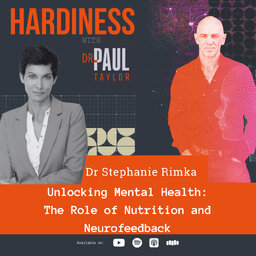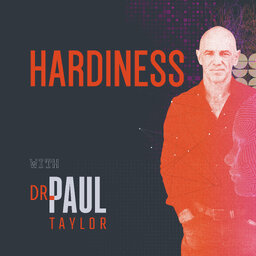Be the Oldest in the Gym, Not the Youngest in the Nursing Home Part 1 with Stacy Sims
Discover the hidden power of exercise in transforming your health and longevity in this illuminating conversation with Dr. Sims, a leading expert in physiology and performance. This eye-opening episode explores the brain-boosting effects of physical activity and uncovers the alarming trend of early-onset muscle loss, and the myriad of health implications of losing muscle as we age. Dr Sims then outlines what training we should all be doing, and highlights important differences for peri and postmenopausal females from the rest of the population, exploring the role of maternal health in offspring development to the unique challenges of menopause, Dr. Sims provides actionable insights to optimise your wellbeing at any age. Tune in for a blend of cutting-edge science and practical tips that could revolutionise your approach to health and fitness.
Key Topics:
-
Exercise and ageing: The broad impact of physical activity on various aspects of the body's ageing process
-
Gender bias in medical research: Historical focus on male subjects and its implications for AI in healthcare
-
Myokines: Understanding these muscle-derived signalling proteins and their effects on metabolism and health
-
GLUT4 and insulin sensitivity: The role of glucose transporters in metabolic health, particularly for women during menopause
-
Brain health and exercise: The critical relationship between physical activity and cognitive function, including the importance of BDN
-
Sarcopenia: The alarming trend of early-onset muscle loss and its long-term health consequences
-
Maternal obesity: Its potential links to neurodevelopmental disorders in offspring, such as autism spectrum disorder and ADHD
Memorable Quotes:
-
“when we're doing intensity or even study state with some lactate production, because it does happen. seeing the brain using its preferred”
-
“when people are severely depressed and then they get put into either resistance training or high intensity work very much. It brings them out of depression, keeps them out of there.”
-
“As an exercise physiologist, you know, we need to teach people to train well while they're on it.”
-
“the more muscle you have, the stronger you are and the better metabolism you have”
-
“Osteoporosis is not just a woman's disease. We're seeing significant increase in men, younger men at that too.”
Actionable Takeaways:
-
Do regular exercise and physical activities to help improve brain health and metabolic function, and combat ageing.
-
Be aware of gender bias in health information: Recognise that historical medical research has often focused on men, which may affect the accuracy of AI-generated health advice for women.
-
Focus on building and maintaining muscle mass and take steps to prevent sarcopenia (muscle loss) early
-
Especially for women approaching menopause, understand the role of GLUT4 in glucose metabolism and take measures to maintain insulin sensitivity.
-
Engage in activities that increase Brain-Derived Neurotrophic Factor, often described as 'miracle grow' for the brain, to support cognitive function.
-
Consider the intensity of your workouts as it plays a crucial role in health benefits
-
Maintain a healthy weight during pregnancy
Resources Mentioned:
Connect with Dr Stacy Sims:
Learn more about Dr Stacy Sims
Dr Stacy Sims on LinkedIn
Dr Stacy Sims on Facebook
Dr Stacy Sims on Instagram
Dr Stacy Sims on YouTube
Connect with Paul Taylor:
Learn more about Paul Taylor
Paul Taylor on LinkedIn
Paul Taylor on Instagram
Paul Taylor on YouTube
Support the Podcast:
If you found this episode valuable, please consider subscribing, rating, and leaving a review on your preferred podcast platform. Your support helps us reach more people with important conversations like this one.
Share this episode with someone who might benefit from hearing it—emotional eating is more common than we think, and this conversation could make a difference in someone's life.
In 1 playlist(s)
Hardiness with Dr Paul Taylor
Host Dr Paul Taylor, a Psychophysiologist, Neuroscientist, Exercise Scientist, and Nutritionist inte…Social links
Follow podcast
Recent clips

The Skin–Brain Connection: How Sunlight Influences Serotonin, Mood and Psychiatric Disorders - Wisdom wednesdays
11:01

What Regret Can Teach You With Carly Taylor
04:57

The Nervous System and Mental Health, with Dr Stephanie Rimka
1:15:52
 Hardiness with Dr Paul Taylor
Hardiness with Dr Paul Taylor